Based on reality, the local education sector has proactively implemented many specific, long-term solutions to coordinate management and "hand-holding" educational tasks.
Confused because of non-specialization
In Gia Lai, out of 144 officials in charge of education at the commune level, only 63 have been trained in pedagogy or education-related fields. The majority of the rest have studied other fields such as agriculture , land management, finance, social work, law, cultural management, etc.
Mr. Do Ngoc Du, graduated in Agricultural and Forestry Economics , has more than 20 years of experience in the fields of agriculture and environment, and is now assigned as a specialist at the Department of Culture and Society of Dak Rong Commune (Gia Lai). Mr. Du is currently in charge of the following areas: beliefs and religions, national target programs on poverty reduction and education.
“All knowledge, documents, and policies related to education are new to me. I have to start from scratch, read documents, and learn from the experiences of officials in other communes. In particular, the commune has more than 90% ethnic minority students, requiring those in charge to have a firm grasp of policies to give appropriate advice and ensure the rights of teachers and students,” Mr. Du shared.
Similarly, Ms. Huynh Thi Minh Phu, a Law graduate, used to work at the Forest Protection Management Board of Phu Cat District (formerly Binh Dinh), and is currently in charge of education in Xuan An Commune (Gia Lai). She shared: “There are many documents, decrees, and resolutions related to education. I am the only one managing 7 schools from kindergarten to junior high school, so I cannot avoid confusion. I still try to learn and understand, but I cannot keep up. My wish is to be assigned a professional officer or a guide to make the consulting work more convenient.”
Ms. Truong Thi Ngoc Tran, who used to be in charge of religion, ethnicity, culture - information, and is currently an officer of the Department of Culture - Society in charge of education and health of Ho Thi Ky commune (Ca Mau), said that the commune directly manages 9 schools from kindergarten to junior high school. She has not yet grasped and understood educational policies such as the staff of each school, the recruitment work at the beginning of the year, the regime of cadres, teachers, the budget allocated for investment in schools, etc., to fully and promptly advise the leaders.
“Everything for me starts from zero, I have to try and make a lot of effort, work and learn at the same time with the spirit of doing all the work and not running out of time,” Ms. Tran shared and suggested that in the long term, it is necessary to increase the number of staff in charge of the education sector or not hold multiple tasks at the same time.
Mr. Nguyen Huynh Anh, formerly a Youth Union officer, now in charge of education in Tan Loc commune (Ca Mau) said: “In the first month of taking on the assignment, I had to work more than 10 hours a day, bringing work home to do at night, which was very stressful. Currently, although I have caught up with the work and am less stressed, there are still many things that cannot be done in time.”
Mr. Nguyen Van Toan - Vice Chairman of Tan Loc Commune People's Committee (Ca Mau) said that the locality has proposed to the Department of Education and Training and the Department of Home Affairs of the province to open a specialized training course for officials in charge of the education sector; establish a Zalo group to provide information on the education sector to officials in charge at the commune level.
In addition, the commune also proposed to soon increase the staff or second specialized staff to support the implementation of educational management work. In the immediate future, the locality will ask the principals of schools in the area and specialized educational staff from neighboring communes to support educational management work, in order to meet the requirements and assigned tasks.
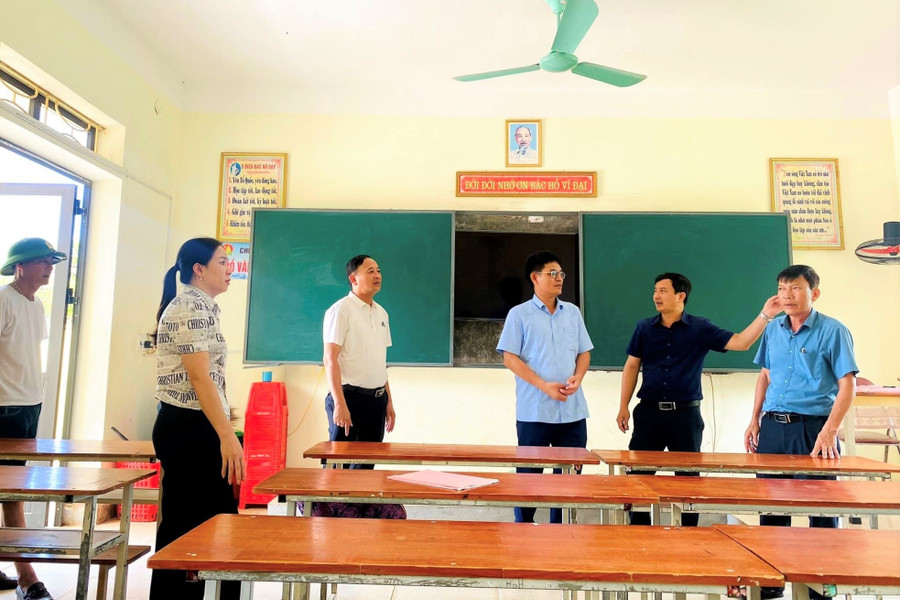
Racing to catch up with work
Ms. Vang Thi Dung - the only specialist of the Department of Culture and Society of Sin Suoi Ho commune (Lai Chau) has expertise in education. For more than 2 months since she started working at the department, Ms. Dung often has to leave early and return late. On her days off, she has to bring documents home to complete the assigned tasks.
“The workload is huge, with many documents sent in every day that need to be processed. Before, when I was working at the Department of Education and Training, I only specialized in primary education. Now I have to do more work for both preschool and secondary schools, so I have to study while doing many things. In addition to specializing in education, I also have to take on other tasks,” Ms. Dung shared.
The Department of Culture and Society of Muong Mo commune (Lai Chau) consists of 5 staff members, but none of them have expertise or experience in education. According to Mr. Vu Van Hieu - Vice Chairman of Muong Mo Commune People's Committee: "Faced with this difficulty, the commune has proactively mobilized 3 experienced staff members and teachers from preschool, primary and secondary schools to help the department in managing, developing and implementing programs and plans related to the education sector. Up to now, the plans of the Department of Education and Training have been seriously implemented by the commune, ready for the new school year".
Similarly, the Department of Culture and Society of Hua Bum Commune (Lai Chau) was assigned 5 positions but only the department leader has expertise in education. Mr. Tran Quang Trang - Head of the department said: "Currently, we assign an officer with expertise in internal affairs to be in charge of education, performing tasks related to policies. The unit also assigned the Vice Principal of Vang San Primary and Secondary School for Ethnic Minorities to perform some tasks in the department".
Before the 2025-2026 school year, Van Kieu commune (Nghe An) is constructing 3 projects at schools including: Nghi Van Primary School's cafeteria; building a new 3-storey building with 12 classrooms and a multi-function building for Nghi Kieu Secondary School; renovating and replacing the roof of the classroom block of Nghi Kieu 2 Primary School.
Mr. Nguyen Van Thong - Vice Chairman of the commune said that the above projects were planned and built since the district government. After implementation, the local government at both levels handed them over to the commune to receive, without interruption. Other issues such as checking school facilities, universal survey, primary school enrollment, etc. were all implemented.
According to Mr. Thong, the staff of the Department of Culture and Society as well as the education specialist of Van Kieu commune did not have previous education expertise. However, the Department of Education and Training has directly directed the teaching expertise. Regarding the State management of education in the locality, the commune directed the staff and specialists to closely follow the directive documents to implement the tasks.
According to Mr. Cao Tien Thanh - Head of the Department of Culture and Society of Quynh Mai Ward (Nghe An), although in terms of decentralization, the commune only manages the State for school units, but the work of inspection, supervision, and concretization of plans, programs, and educational tasks is still open, causing difficulties. The Department of Education and Training directly directs the implementation but is not often present in the locality, while the personnel in charge of education in the commune do not ensure sufficient expertise and understanding.
Regarding the solution of seconding and mobilizing key managers and teachers from schools to support communes in educational management, Mr. Cao Tien Thanh said that there are still some problems. Previously, many localities in Nghe An had a "lesson" about officials seconded to work at the Department of Education and Training; many people had to return teaching allowances, seniority, etc. due to improper payment of financial regulations. Therefore, the Quynh Mai Department of Culture and Society is updating directives and instructions to implement educational tasks in the area in accordance with its authority and regulations.
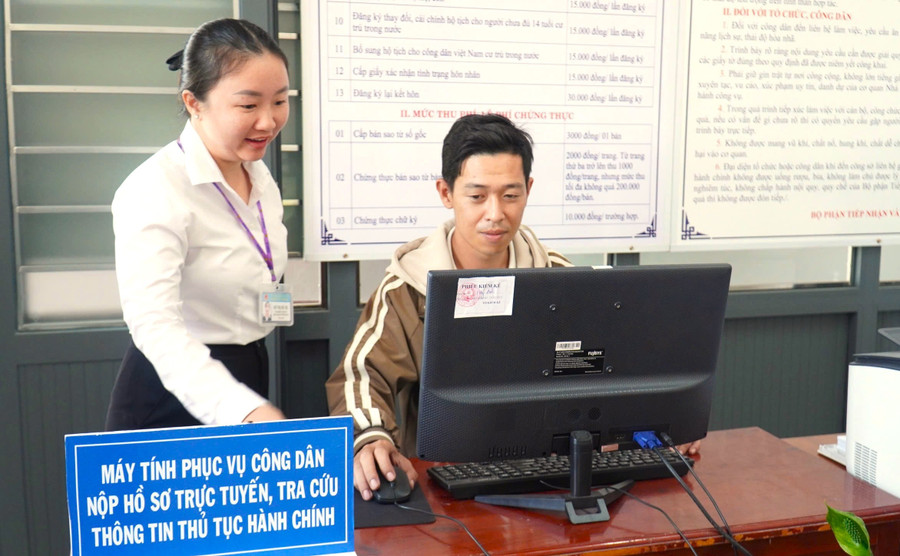
Coordinate and support commune level education management
Mr. Pham Van Nam - Director of the Department of Education and Training of Gia Lai, said that the Provincial People's Committee has decided to establish a Working Group to provide professional guidance in the field of education and training in communes and wards. The Working Group will directly coordinate with local authorities to assess the situation, remove difficulties, provide professional guidance and develop procedures for handling work in accordance with regulations.
“The support period at each commune and ward lasts from 1 to 2 weeks, maybe longer but not more than 1 month. During the work, the reinforced staff will both handle problems and train and develop on-site personnel so that they can replace them later, ensuring sustainability. This is also a way to help the grassroots staff gradually become more knowledgeable and proactive when advising and managing the education sector,” Mr. Nam emphasized.
In Nghe An, Mr. Thai Van Thanh - Director of the Department of Education and Training said that the department has been proactive in the province's educational governance model when implementing a two-level local government. Accordingly, the department directly manages the principals of schools from kindergarten to high school and sends written notices to communes and wards. Due to the vast terrain, the department has established 5 educational clusters in the highland border areas, mountainous areas, plains, coastal areas, etc.
Each cluster consists of 3-5 people from the Department of Education and Training, with offices located at continuing education centers in the province, so there is no additional staff or cost of facilities. These clusters are the extended arm of the Department of Education and Training, directly supporting local authorities and schools in carrying out educational tasks, and promptly handling unusual situations if any.
Since July 1, the Nghe An Department of Education and Training has trained and sent excellent teachers and key experts to support commune-level authorities with a number of 5 people per commune and ward. The coordination method is to deploy support for people and local authorities directly at the commune and ward public administrative centers for at least 6 months. The principal will deduct hours for teachers participating in support at the commune-level public administrative centers and ensure salaries and other benefits.
Regarding the limited and unprofessional education staff at the commune level, according to Mr. Thai Van Thanh, the department allows the Chairman of the People's Committee of the commune or ward to mobilize teachers, principals, and vice principals to support at specific times and tasks such as universalization, enrollment at the beginning of the school year, teacher and student competitions at the grassroots level, etc. After the mobilization period (no more than 3 months), the staff and teachers return to school to work normally.
“When implementing the new school year tasks for each level of education, the Department of Education and Training invited leaders and officials in charge of education at the commune level to attend to grasp information, direct, implement, and supervise the State in the locality. Currently, the preschool, primary, and secondary school departments of the department prepare documents, outlining the key tasks and corresponding tasks of the commune, what direction is needed, the content of the work, the process, and the procedures and documents to send to the commune for implementation. With this "hand-holding" method, difficulties and obstacles for commune-level officials in charge of education will be removed,” said Mr. Thanh.
The Department has proposed that the Provincial People's Committee direct the Department of Home Affairs to advise the Ministry of Home Affairs to submit a document to the Government on recruitment, use and management of civil servants to serve as a legal basis for developing a plan and organizing the recruitment of civil servants in the Education sector in accordance with regulations. At the same time, supplement resources for the team of civil servants at the commune level to ensure good performance of assigned roles, functions and tasks. - Mr. Ta Thanh Vu - Deputy Director of the Department of Education and Training of Ca Mau
Source: https://giaoducthoidai.vn/nang-cao-nang-luc-can-bo-giao-duc-cap-xa-vua-chay-vua-xep-hang-post748226.html




![[Photo] General Secretary To Lam attends the Digital Popular Education Symposium - Digital National Assembly](https://vphoto.vietnam.vn/thumb/1200x675/vietnam/resource/IMAGE/2025/9/13/43ebd93f0f5e4d98a2749dab86def7cd)
![[Photo] Vinh Hao-Phan Thiet Expressway has a frog's jaw](https://vphoto.vietnam.vn/thumb/1200x675/vietnam/resource/IMAGE/2025/9/13/a89ffa426f7a46ffb810cb1d7bdfb1b8)

![[Photo] Hundreds of meters of Hoi An coastline seriously eroded](https://vphoto.vietnam.vn/thumb/1200x675/vietnam/resource/IMAGE/2025/9/13/57c85b745a004d169dfe1ee36b6777e5)
![[Photo] General Secretary To Lam attends the 80th Anniversary of the People's Court's Traditional Day](https://vphoto.vietnam.vn/thumb/1200x675/vietnam/resource/IMAGE/2025/9/13/ff42d08a51cc4673bba7c56f6a576384)




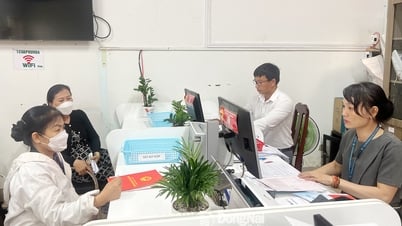



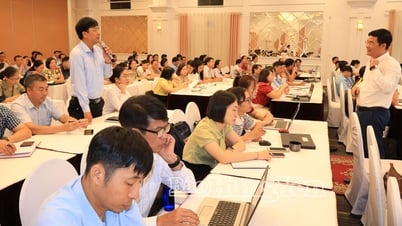






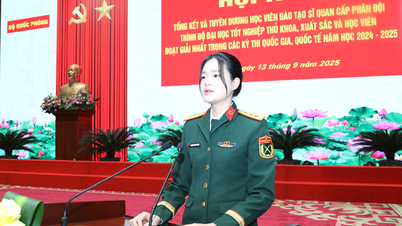

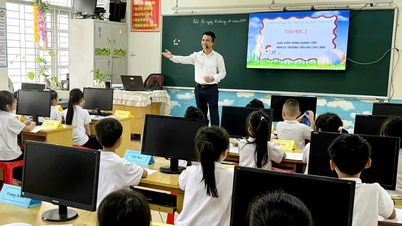
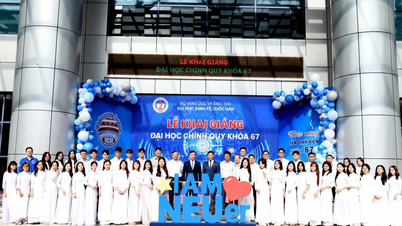















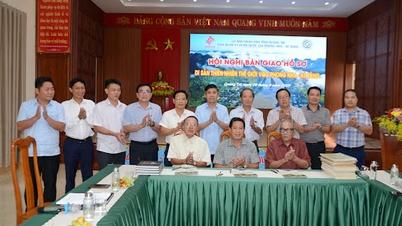



































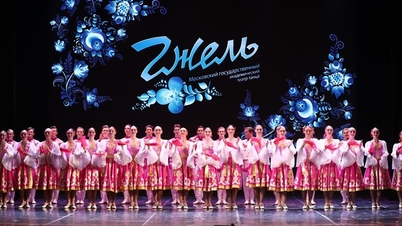

![[Podcast] More than 5,000 Hanoi workers receive unemployment benefits in August 2025](https://vphoto.vietnam.vn/thumb/402x226/vietnam/resource/IMAGE/2025/9/13/694bef4ef3324edeb5e27b4124915809)



















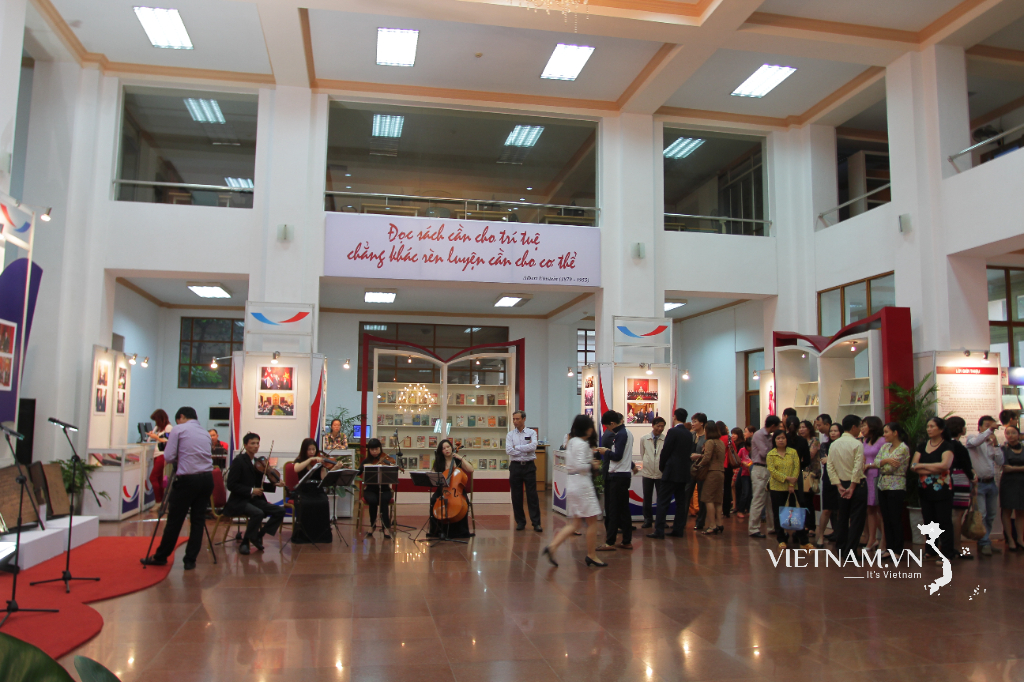


Comment (0)